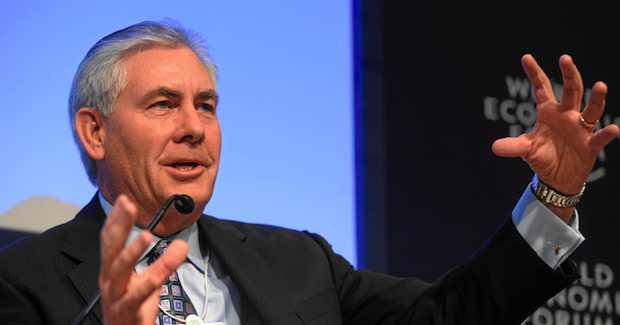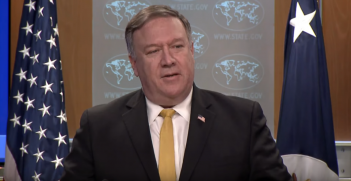Bishop to Debate Global Goals at G20

Next week Julie Bishop will join Rex Tillerson, Boris Johnson and other top diplomats in Bonn for the G20 meeting of foreign ministers. The meeting comes ahead of July’s G20 leaders summit and German Chancellor Angela Merkel has made no secret of her desire to use this year’s G20 to set “a course diametrically opposed to isolationism and any return to nationalism”. Concrete measures related to education and polio elimination may help.
Among other key issues, next week’s foreign ministers meeting is expected to address the G20’s role in achieving the Sustainable Development Goals (SDG). The SDGs are the United Nation’s 17-point plan to end extreme poverty, reduce inequality and mitigate climate change and this will mark the first time the SDGs have been addressed formally beyond the G20 summit agenda.
As is often the case with such meetings though, there is the risk that save for a few warm gestures and handshakes the summit will not achieve much beyond a handful of vague promises to do something further down the line.
But if Bishop, Tillerson and co. genuinely want to turbocharge the implementation of the global goals, then there are a few key concrete measures they could use the meeting to push for.
Eradicating anachronistic disease
Firstly, they could seek a renewed commitment to eradicate polio before the end of the decade. With just 37 cases recorded in 2016, down from 74 in 2015, we’ve never been closer to making this terrible disease just the second in history to be eradicated. But with thousands of children still yet to be reached with a vaccine, the effort remains constrained by a AU$1.3 billion funding gap that threatens to derail progress to date.
How is the eradication of an ancient disease relevant to next week’s discussion on the global SDGs? Newly appointed UN Deputy Secretary-General Amina Mohammed has said that, at their core, the global goals seek to ensure that “no one is left behind”. In reaching children in the most remote, vulnerable and socially-excluded communities, the eradication of polio worldwide could provide the blueprint for achieving this noble ambition, thereby becoming one of the first key milestones of the SDGs.
A victory against polio could in turn be used by the G20 to galvanise public support for other key initiatives, not only those related to the goals but also those that promote the global public good more broadly. For instance, lessons learned from the polio eradication effort could be leveraged to enhance global health security as a whole. We’ve seen in recent years with Zika and Ebola how, when coupled with cheap and fast international travel, a disease that breaks out in one part of the world can quickly spread to another. Some estimates suggest that the next big pandemic will not just cost lives but could reduce global GDP by 5 to 6 per cent if not more.
Stocking up on skills
A second issue that should be at the forefront of next week’s meeting is education. Although 263 million young people lack an education globally, this learning crisis has so far failed to capture attention at previous G20 gatherings. And yet, ensuring every child is able to thrive could not be more important to long-term economic prosperity and achieving the global goals as a whole.
Last year, an international financing commission—overseen by a host of global luminaries including former Australian Prime Minister Julia Gillard—found that 40 per cent of employers worldwide find it difficult to recruit people with the skills they need. Unless we ensure young people are equipped for the jobs of the future, we risk a huge skills shortage that will undoubtedly stunt global economic growth. With no jobs and growth, there is little chance we’ll be able to achieve any of the other global goals, all of which require huge levels of investment.
And yet funding for education is woefully inadequate compared to other development priorities. The Global Partnership for Education (GPE), the global education fund chaired by Gillard, needs be scaled up to AU$2 billion per year by 2020 to even come close to meeting the needs of ill-equipped education ministries. But at the GPE’s last replenishment conference in 2014, it managed to raise just over AU$2 billion to cover its work over four years.
Cooperation as a vaccine
With no shortage of diplomatic crises vying for their attention, next week’s G20 foreign ministers’ meeting will undoubtedly have a crowded agenda. But the world’s top diplomats should not let short-term issues push out the opportunity to nail down a plan to jumpstart implementation of the global goals starting with a few concrete deliverables. Polio and education are two examples of where the G20 could make a tangible contribution.
Ultimately, investing in measures that have a clear impact on peoples’ lives will by itself demonstrate to everyday citizens the value of global cooperation over the isolationist, nationalistic sentiments that threaten to undermine the multilateral system.
Michael Sheldrick is the global director of policy and advocacy with Global Citizen, an Australian-grown international advocacy group based in New York.
This article is published under a Creative Commons Licence and may be republished with attribution.





